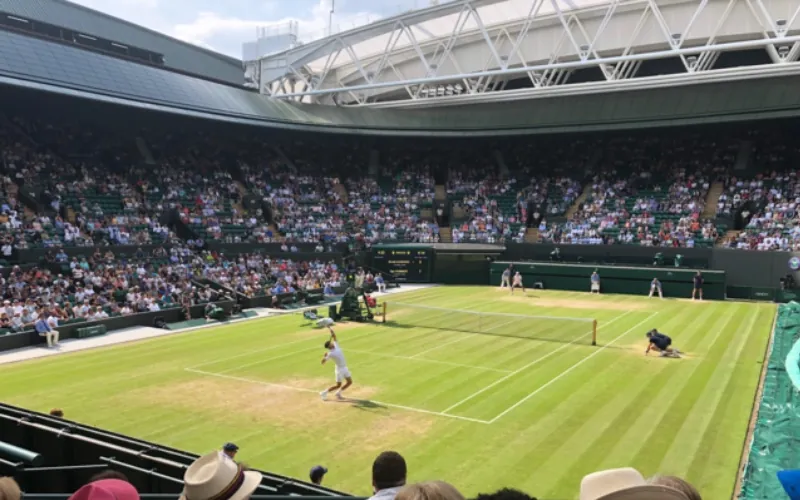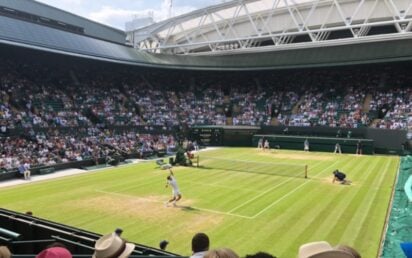For the first time in its 147-year history, Wimbledon has eliminated human line judges entirely as they make way for AI-powered officiating.
The iconic major tournament has now joined the Australian and US Open, as well as the ATP (Association of Tennis Professionals) Tour, in deploying camera-based, AI-enhanced line-calling technology across all courts.
The French Open now remains the last Grand Slam to keep human line judges, citing the importance of preserving the sport’s heritage and traditions.
The new officiating system, developed by Basingstoke-based sporting tech giant Hawk-Eye, relies on up to 18 high-speed cameras that track ball trajectories in real time.
AI algorithms then determine whether a shot lands in or out in less than 1/10th of a second.
The calls, however, are not delivered by robotic voices – they are vocalised using recorded messages from All England Club staff members, including tour guides and backstage crew.
“We will use different voices on different courts so there is no confusion across courts that are close together,” said Eloise Tyson, head of communications at Wimbledon.
According to the ATP, the aim is to ‘optimise accuracy and consistency across tournaments, match courts and surfaces’.
However, despite the tech-fuelled leap, reactions have been mixed.
During a first-round men’s match, Carlos Alcaraz and Fabio Fognini questioned the system’s verdict, forgetting that there had been a change from a long-term tradition.
Chinese player Yuan Yue also added: “The voice, I cannot really hear it, it is a bit too low, so I asked the referee can you [turn] it up a little bit. He said he cannot.
“He said he will try to let us know [the call] because he has a machine that can look it up. I don’t really mind, I just want to hear it clearly.”
The decision also raises questions about the future of human officiating in sport.
Up to 300 line judges once participated at SW19 each year and now they are no longer needed to play a part.
However, the human element is still necessary within the sport, with the industry now rethinking and adapting how officials are trained.
Malgorzata Grzyb, chair of the Association of British Tennis Officials, said: “Instead of starting solely as line umpires, new officials now receive training in both line and chair umpiring from the outset, enabling them to progress more rapidly to chair umpire roles.”
Social media stars raise £2.7m for ‘nootropics’ brand Neutonic


